The definition of fine coffee The flavor characteristics of fine coffee Introduction to the varieties of fine coffee beans.
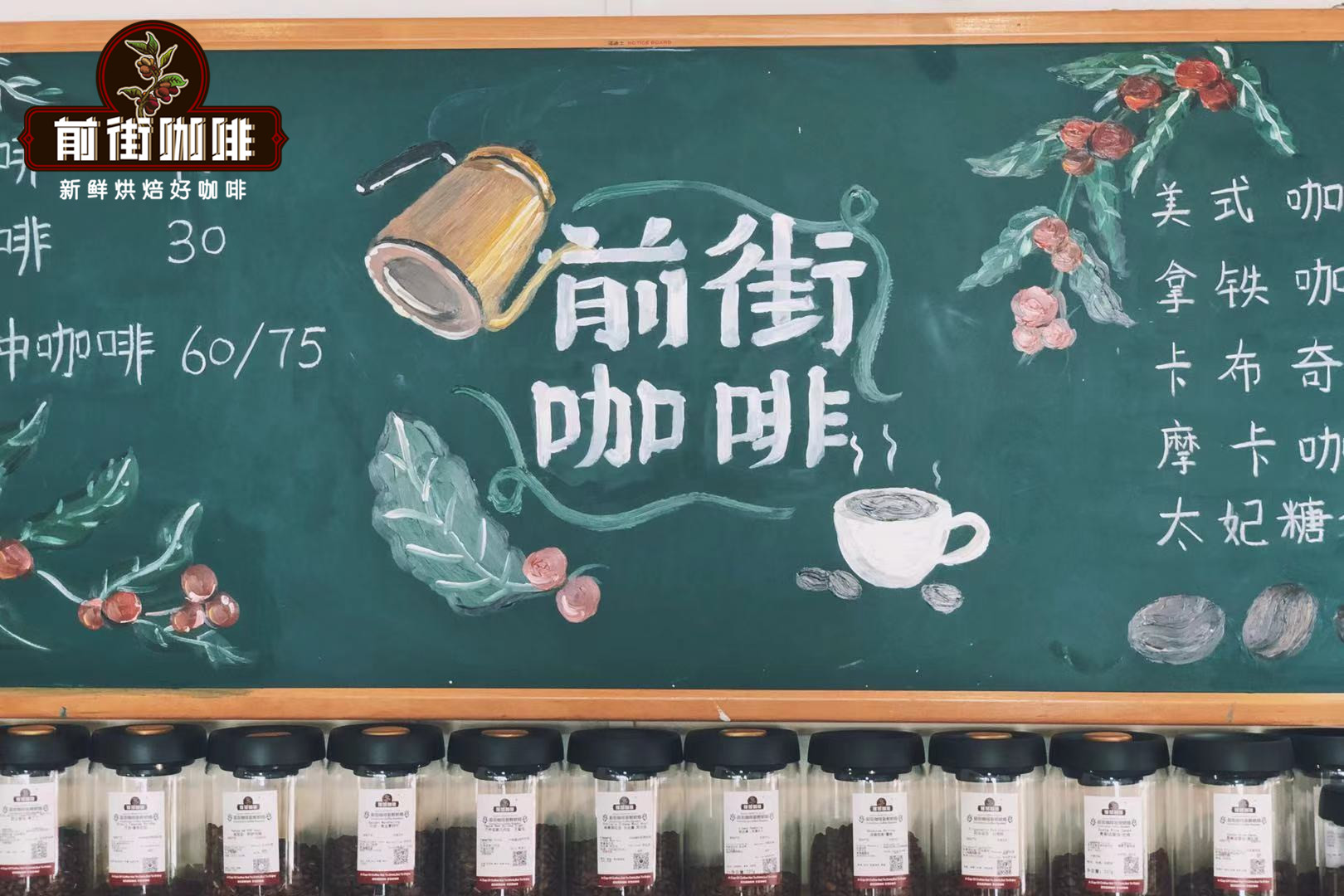
In today's society, no matter what things are high-end, food or drink, as long as the addition of the word boutique, the price immediately soars, but whether it is worth it or not depends on the individual's choice. As one of the three major drinks in the world, coffee has its own different history and culture, and it also blossoms and bears fruit all over the world. Coffee is now called a showdown between boutique coffee, so what is boutique coffee? Qianjie is here to share with you.
As a proper term, boutique coffee (Specialty Coffee) was first put forward by Ms. Erna Knustsen, who is known as the godmother of boutique coffee, in the Tea and Coffee monthly (Tea& Coffee Trade Journal) in 1974, which showed that "only in the most favorable microclimate and soil and water can we cultivate boutique coffee with unique flavor". The aim is to distinguish it from the commercial coffee in New York futures market.
Boutique coffee is completed by the five people who pursue quality all their lives. From beginning to end, these people maintain a consistent standard of excellence to ensure quality, and as a priority, all participants can work together. They can't do without! They include "coffee farmers", "raw bean buyers", "bakers", "baristas" and "consumers". In the overall cycle from production to consumption, we work together to achieve the true meaning of boutique coffee.
Carefully select the most suitable variety and plant it in the altitude, climate, soil and water environment that is most conducive to the development of coffee flavor. Careful washing and sun processing, select the most advanced raw beans without defects, and deliver them to customers with zero defects in the transportation process. After the superb craftsmanship of the roaster, it leads to the richest regional flavor, and then brews delicious coffee in a recognized way of extraction.
Boutique coffee is [consumers drink coffee with excellent flavor, willing to give good comments, and consumers are satisfied]; the definition of excellent flavor means that the coffee flavor can leave a clear impression, sour, bright, crisp and special, and the coffee has a sweet aftertaste. As for coffee itself, all stages from raw beans to a cup of coffee can implement consistent and strict production procedures, unified procedures and strict quality management. Only coffee that meets the above conditions belongs to high-quality coffee.
Take the COE22 on the bean list of the front street coffee shop as an example:
The COE22 of Qianjie Coffee comes from Arsi in the Sidamo region of Ethiopia. The coffee is one of the oldest varieties in Arabica, the iron pickup, which is tanned.
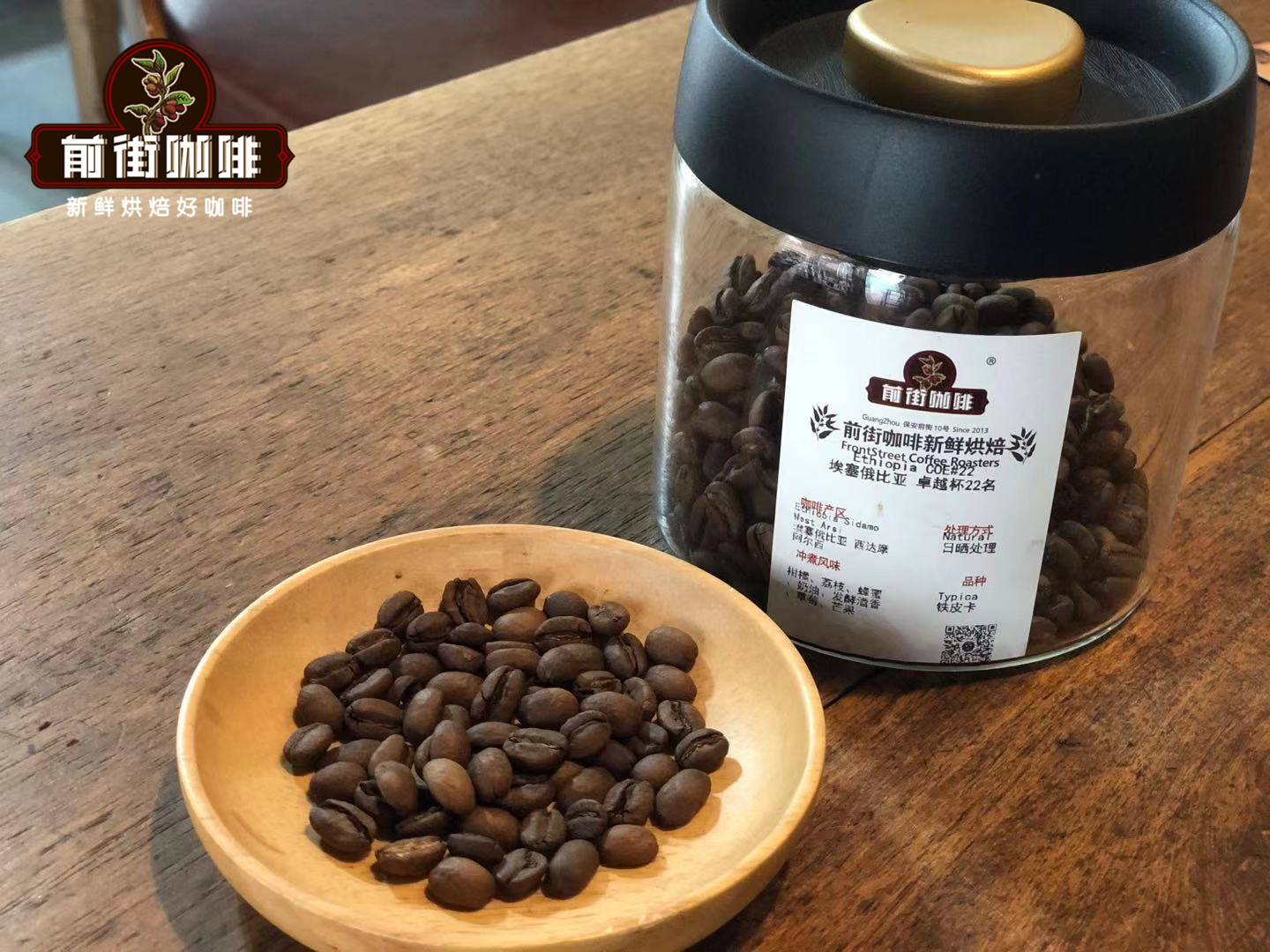
Qianjie Coffee Ethiopia Excellence Cup 22
Producing area: West Damoalsi, Ethiopia
Grower: Adem Banta Sute
Variety: iron pickup
Treatment method: sun treatment
Ethiopia is known as the birthplace of coffee, while Arsi is in West Alsili. West Alsi is located between the famous Yega Sheffield Coffee growing area and Halergai, 1900-2200m above sea level, in the western part of the Sidamo region, which is named after a branch of the Oromo people who have lived here for a long time.
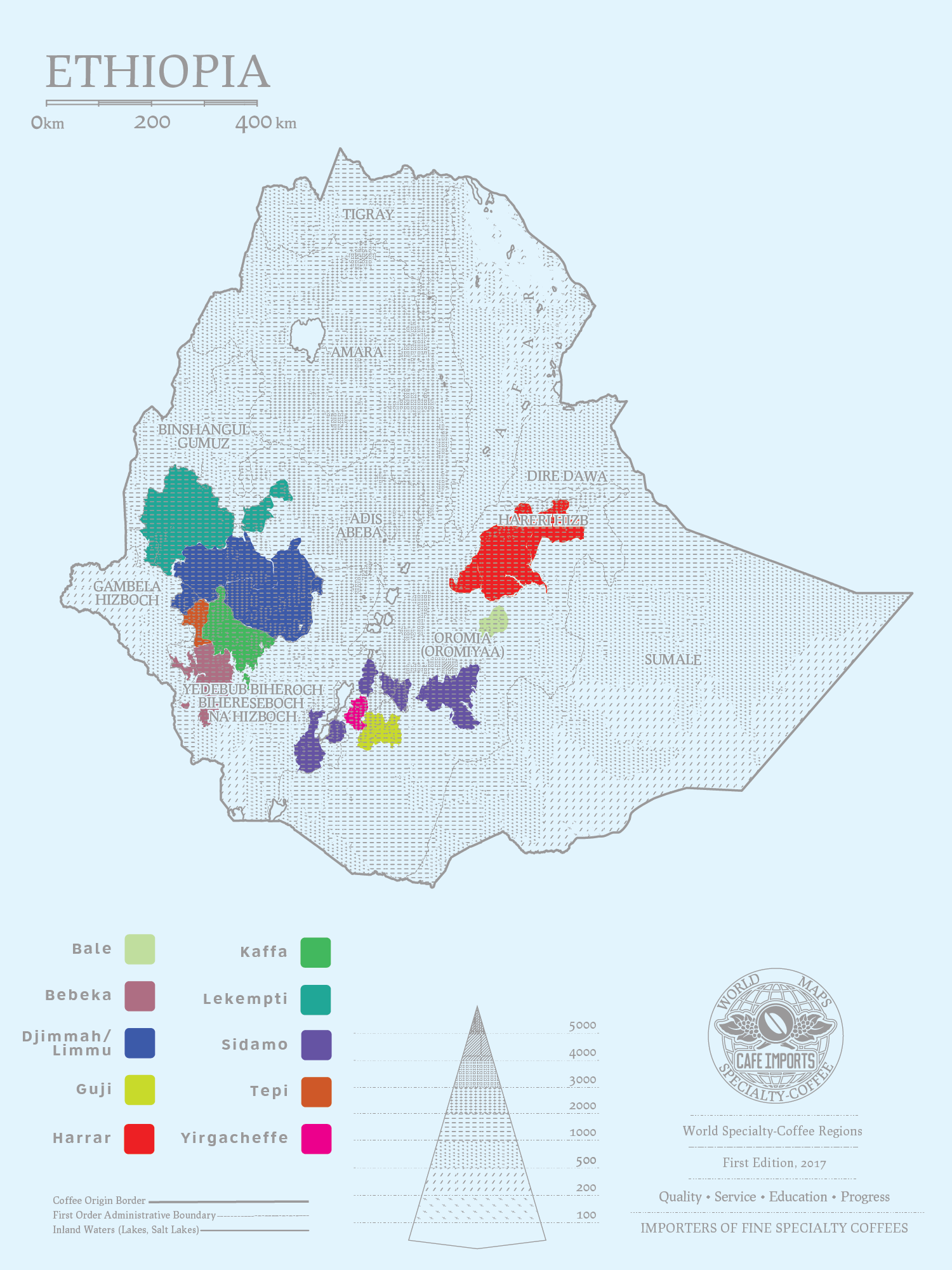
Adem Banta Sute, the grower of Qianjie COE22 beans, who produced 4500 kilograms of coffee on his 6 hectares of land, described himself as: "I grew up on a coffee farm and have been farming all my life. I won the place in this competition as a reward for my efforts."
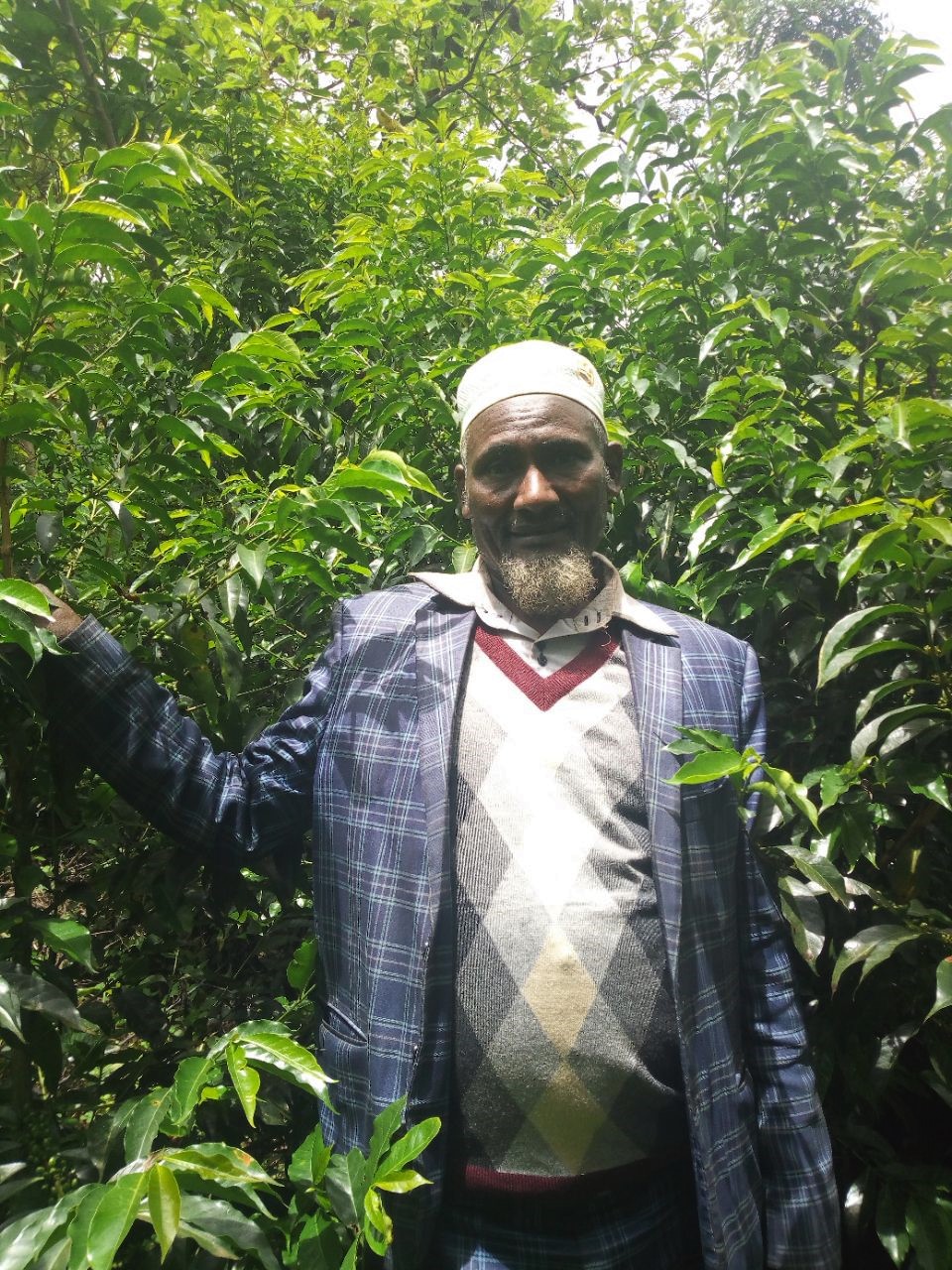
The top leaf of the iron pickup is bronzed, and the bean body is oval or thin in shape; the flavor is elegant, but the physique is weak, the disease resistance is poor, and the fruit yield is low. Qianjie coffee tests tin cards from different places through cups. No matter where they are planted, tin cards have spread all over the world with their unique quiet and clean flavor, balanced characteristics, and taste characteristics.
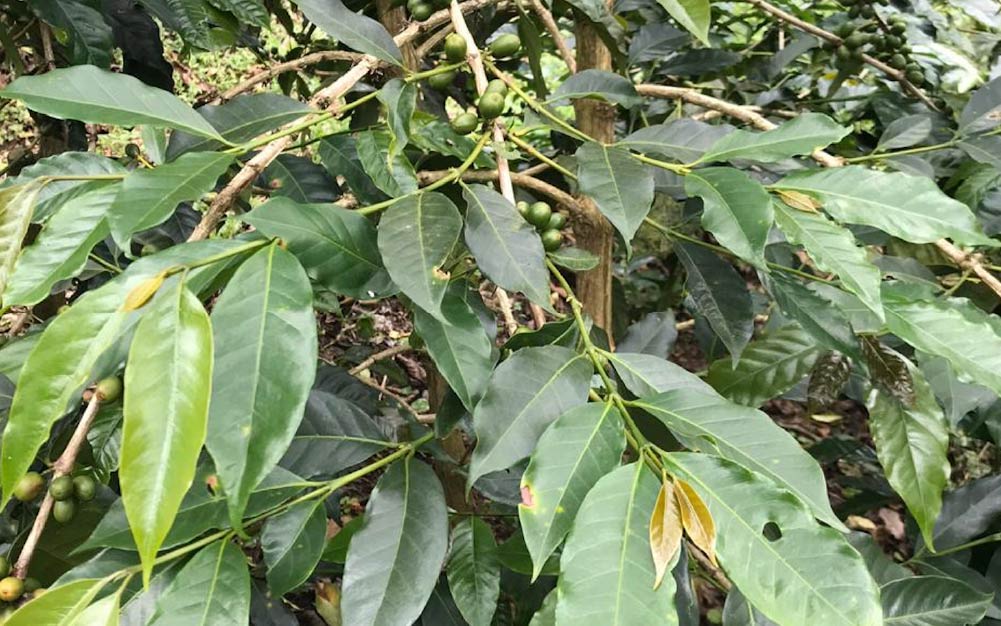
The treatment of this COE22 is the sun treatment. In Ethiopia, more than 70% of coffee fruits are treated in the sun. Sun-treated coffee is sweeter and thicker than water-washed coffee. After selecting the available coffee berries after harvest, Adem Banta Sute, the grower of this coffee bean, puts the whole coffee berries with intact pulp and skin in an elevated shed for sun treatment, which needs to be manually turned evenly before the moisture content is reduced to 25%. It needs to be turned every 30 to 60 minutes to avoid unpleasant overfermentation. It is this kind of greenhouse drying method that invests in high-intensity human labor, isolates contact with the ground, prevents the miscellaneous smell of soil in the process of sun exposure, and creates an unusually clean fruit flavor. After more than two weeks of sun exposure, the dark brown coffee fruit is stored professionally, waiting for the whole flavor to ripen. Before shipping, the coffee beans are taken out from the coffee berries, the sweetness can be imagined.
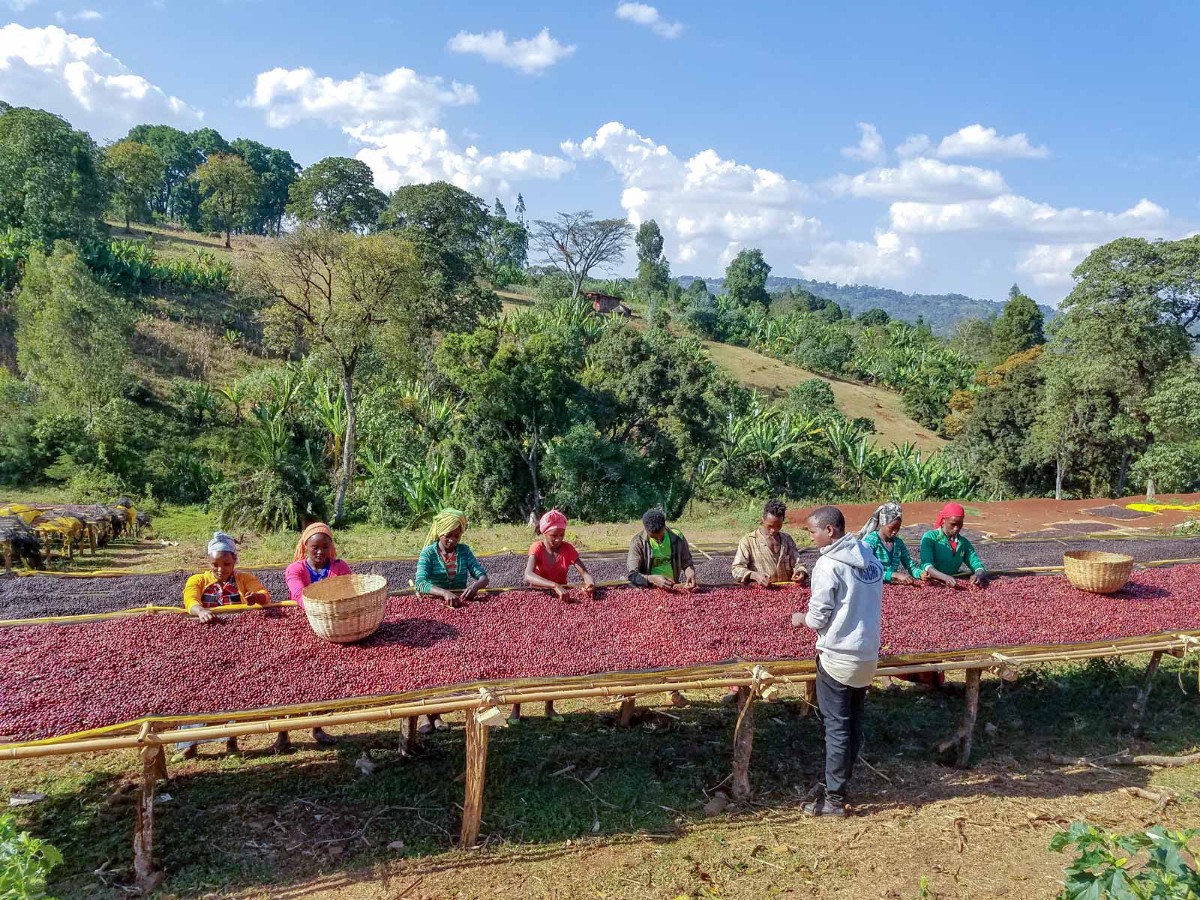
Friends who have been to Qianjie coffee shops will more or less have their own understanding of boutique coffee, and those who come to Qianjie stores to taste coffee can also see the way the baristas brew coffee.
Qianjie coffee brewing technique: three-stage extraction. Steam with 30 grams of water for 30 seconds, small water flow around the circle to 125 grams for sectional injection, water level drop is about to expose the powder bed, continue to inject water to 225 grams to stop injection, and so on when the water level drop is about to expose the powder bed, remove the filter cup, (steaming starts timing) the extraction time is 2 minutes 39 percent 00 ".
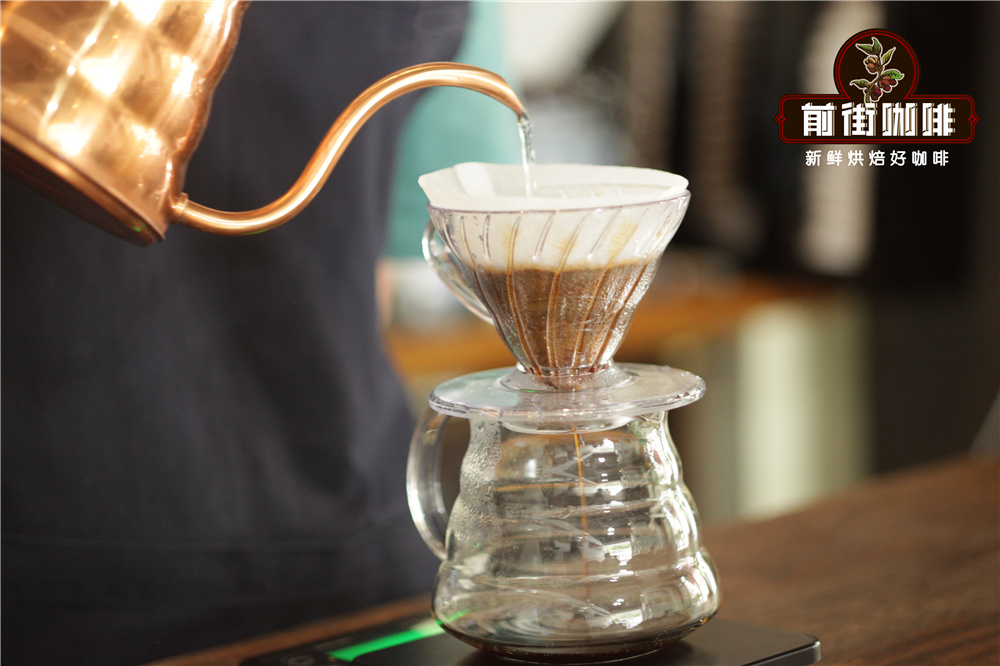
The cooking flavor of this COE22 is citrus acidity, berry juice, creamy smoothness and honey finish.
It is mentioned in Master Han Huaizong's "Fine Coffee Science" that boutique coffee is seven percent of the variety and one-third of the environment. In order to have a better understanding of boutique coffee, Qianjie Coffee personally studied fine coffee and set up its own coffee farm in Lincang, Yunnan Province.
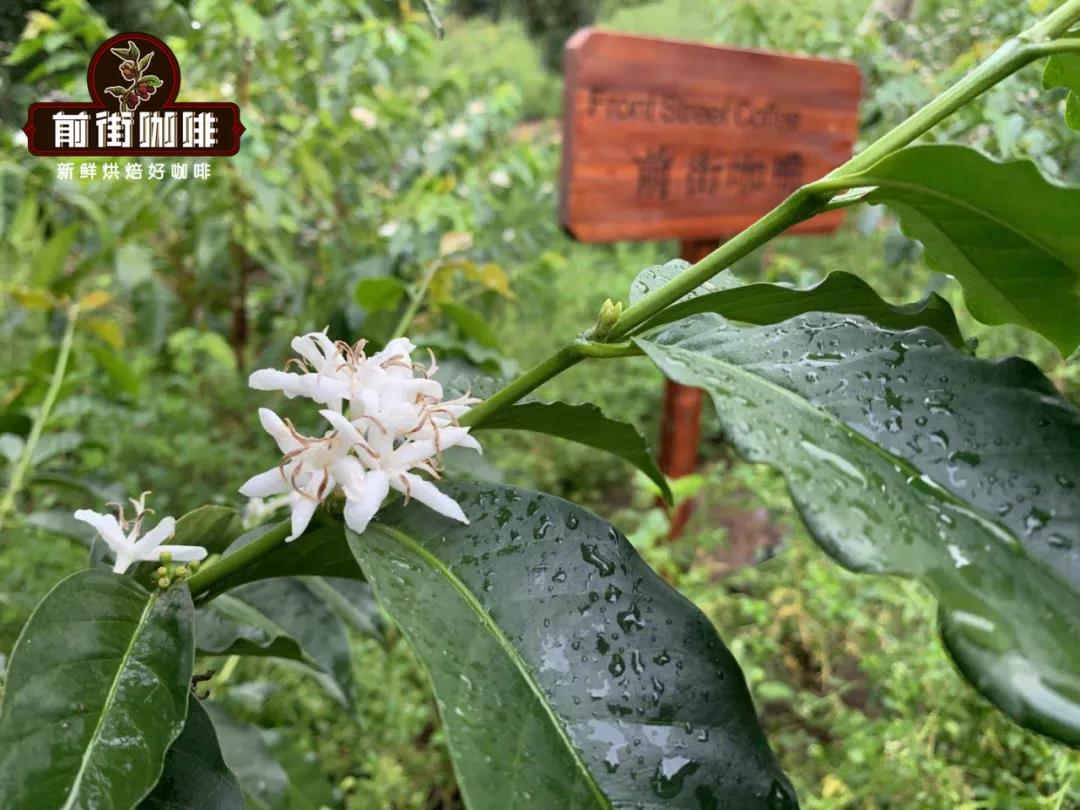
In the coffee farm in Qianjie, Yunnan, graceful tin pickups are planted in Qianjie. The land of the manor has fertile soil, the location of Rain Water is sufficient, and there is a large temperature difference between day and night. This altitude is suitable for planting Arabica species. The weather in the manor is changeable. One second it is sunny, and the next it may start to rain. It is precisely such a micro-climate that makes this tanning iron pickup truck in Qianjie full of flavor.
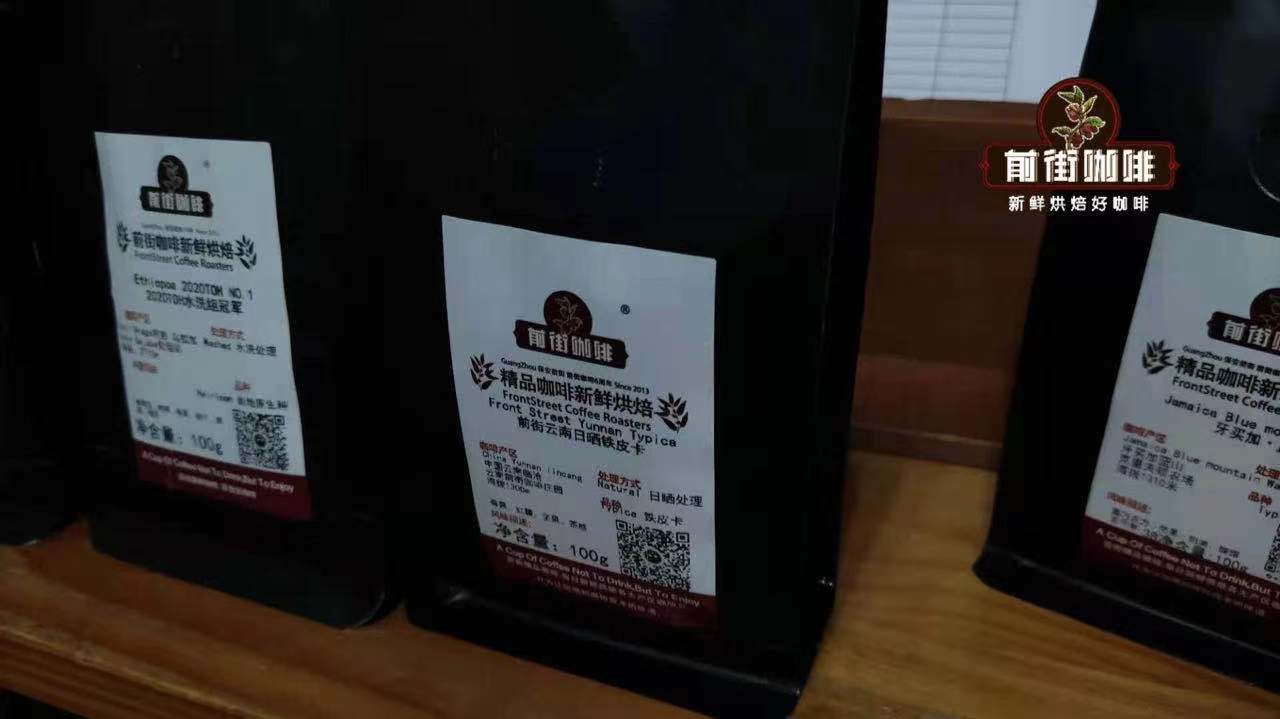
Qianjie Yunnan Sun Iron pickup truck
Producing area: Lincang, Yunnan, China
Manor: Yunnan Qianjie Coffee Manor
Altitude: 1300m
Variety: iron pickup
Treatment method: sun treatment
Its cooking flavor has soft berry acidity, nutty flavor, brown sugar-like aftertaste, with an obvious sense of tea.
Professional coffee knowledge exchange more coffee bean information please follow the coffee workshop (Wechat official account cafe_style) more boutique coffee beans please add private Wechat Qianjie coffee, WeChat: kaixinguoguo0925
Important Notice :
前街咖啡 FrontStreet Coffee has moved to new addredd:
FrontStreet Coffee Address: 315,Donghua East Road,GuangZhou
Tel:020 38364473
- Prev
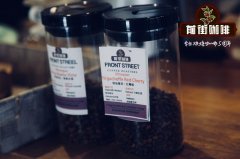
Coffee that looks like both wine and coffee-- Irish coffee, stories about Irish coffee
For information, please pay attention to the coffee workshop (Wechat official account cafe_style), which is rich and mellow, which is another realm of drinking coffee. Coupled with the strong aroma of Irish Whiskey's Irish Coffee, the cost of coffee is higher than that of ordinary coffee, but it can enhance the fun and romantic realm of coffee. Special service, very high-end and distinguished coffee. It is very suitable for men to drink at night. Irish coffee is my favorite.
- Next
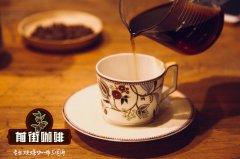
Yega Xuefei Qisha processing Plant Coffee characteristics Why is Ethiopia Yega Xuefei famous?
Professional coffee knowledge exchange more coffee bean information please follow the coffee workshop (Wechat official account cafe_style) Yega Xuefei grows in the mountains and forests of the famous Sidamo producing areas in southwestern Ethiopia. Coffee beans belong to small and medium particles, the color of raw beans is slightly yellowish green, and the bean shape is beautiful and complete, which is typical of fine coffee in East Africa. Yejia Xuefei is the most enjoyable
Related
- Detailed explanation of Jadeite planting Land in Panamanian Jadeite Manor introduction to the grading system of Jadeite competitive bidding, Red bid, Green bid and Rose Summer
- Story of Coffee planting in Brenka region of Costa Rica Stonehenge Manor anaerobic heavy honey treatment of flavor mouth
- What's on the barrel of Blue Mountain Coffee beans?
- Can American coffee also pull flowers? How to use hot American style to pull out a good-looking pattern?
- Can you make a cold extract with coffee beans? What is the right proportion for cold-extracted coffee formula?
- Indonesian PWN Gold Mandrine Coffee Origin Features Flavor How to Chong? Mandolin coffee is American.
- A brief introduction to the flavor characteristics of Brazilian yellow bourbon coffee beans
- What is the effect of different water quality on the flavor of cold-extracted coffee? What kind of water is best for brewing coffee?
- Why do you think of Rose Summer whenever you mention Panamanian coffee?
- Introduction to the characteristics of authentic blue mountain coffee bean producing areas? What is the CIB Coffee Authority in Jamaica?

